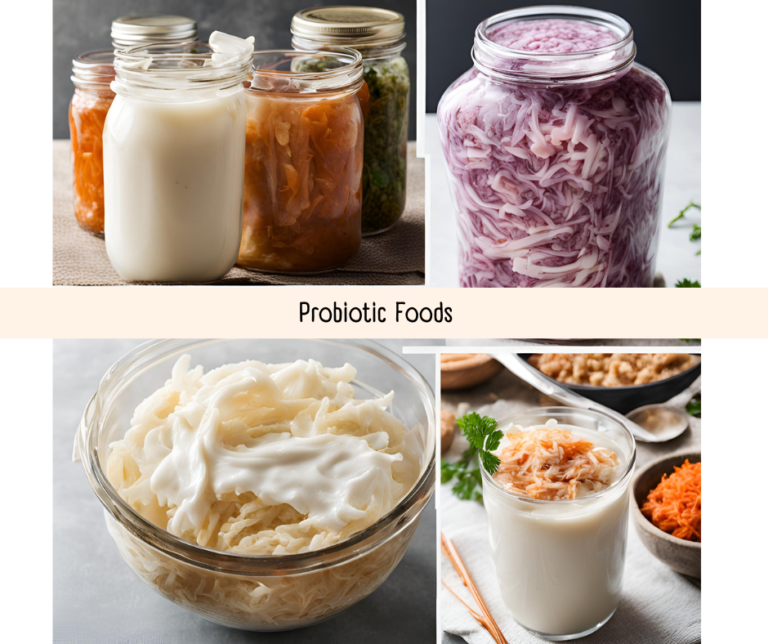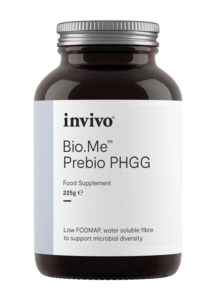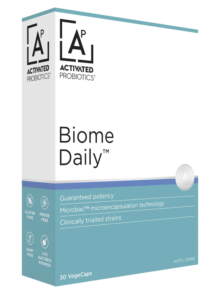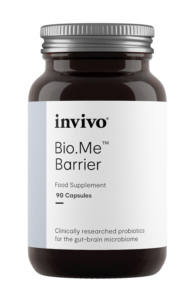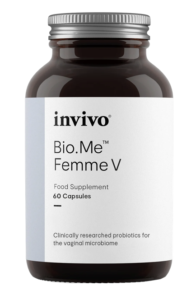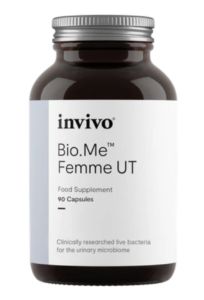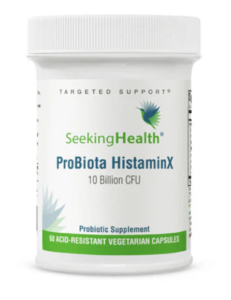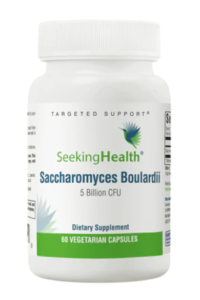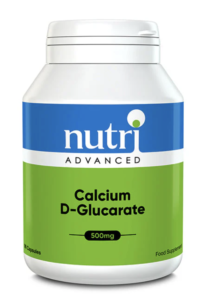
🌿 The 27th June is World Microbiome Day! 🌿
It is on this day that the world shares the importance of microbes to our health. I want to share how amazing microbiomes are and explain the crucial relationship between our gut and reproductive health, especially in the context of endometriosis.
What is a "Microbiome"?
O’Mahony and Comizzoli (2023) explain that many parts of the animal and human body host groups of bacteria, viruses, and fungi that together are known as the microbiome. When balanced, microbiomes do not cause disease but are important for the healthy functioning of many systems in the body. The body has a multitude of different microbiomes, from the skin, mouth, nose, gut, and reproductive area (uterus, vagina, fallopian tubes).
My Garden Analogy!
“I liken our microbiomes to a garden. Our body is a garden, and there are different flower beds with different varieties of flowers as different microbiomes. They all interact, just as bees and butterflies move between them carrying pollen, allowing plants to move from one to another where there is space. If you do not tend to the garden, the flowers slowly get taken over by weeds, which are opportunists. The longer it is left unattended, the more the weeds take over and the more damage they cause. If you care for your garden, feed it plenty of water and plant food, and remove the weeds that start to get too big, the garden will continue to flourish!”

This is just like our microbiomes.
If we feed ourselves foods the good bacteria like – such as plenty of water, fiber from vegetables, grains, and legumes, and regularly plant seeds with fermented foods like yogurt, sauerkraut, kimchi, etc. – and also regularly weed using natural antimicrobial herbs such as oregano, garlic, rosemary, and nigella seeds, our microbiomes will flourish.
If we feed our bodies lots of sugar and not enough of the good stuff, this feeds those opportunistic nasties and starves the good bacteria. Over time, our garden looks run down and overtaken by weeds, and it cannot serve us very well anymore.
Gut and reproductive microbiomes in endometriosis
The role of the microbiome in endometriosis is not yet well understood (Mor, 2022). However, endometriosis patients typically present with higher levels of proinflammatory cytokines in peritoneal fluid, and gut bacteria can regulate whole-body inflammatory responses, potentially accelerating autoimmune processes. Endo is associated with complex immune issues and disorders and very likely with gut microbiota alterations – though the research doesn’t yet unanimously show this.
There is emerging evidence that there may be “cross-talk” between the gut microbiome and the urinary-genital microbiomes that leads to the development of endometriosis (Ser et al., 2023).
Estrogen & the “estrobolome”
Endometriosis is estrogen-dependent, and gut microbiota can influence estrogen metabolism through a specific part of the gut microbiome known as the “estrobolome”, potentially contributing to the disease through increased estrogen levels. The gut bacteria affect how estrogen is processed in the body by producing an enzyme called b-glucuronidase.
Estrogen also affects these gut bacteria. Bacteria like Bacteroides, Bifidobacterium, Escherichia, and Lactobacillus spp. can raise estrogen levels by making b-glucuronidase (Kwa et al., 2016). These b-glucuronidase enzymes can then “unbind” nicely packaged ‘safe’ estrogen in the stools of the colon that was ready for excretion, so it becomes volatile estrone and estradiol. Since endometriosis depends on estrogen, an imbalance in gut bacteria may cause or rather “fuel” endometriosis by increasing estrogen levels in the blood (Baker et al., 2017).
Did you know that the health of your gut microbiome can significantly impact your reproductive health?
The gut microbiome plays a key role in regulating the immune system and inflammation, both of which are crucial in managing endometriosis. An imbalance in gut bacteria can lead to chronic inflammation, which can exacerbate endometriosis symptoms. Moreover, certain gut bacteria are involved in the metabolism of estrogen, a hormone that fuels the growth of endometrial tissue. By maintaining a healthy gut microbiome, you can potentially modulate estrogen levels and reduce the severity of endometriosis.
A diverse gut microbiome supports overall health, including your reproductive system. By nurturing your gut bacteria, you can help reduce inflammation, regulate hormones, reduce many endo symptoms, and improve your chances of conception.
It is also important to understand that endometriosis both impacts and is impacted by the balance of the different pelvic & genital microbiomes (including cavity, fallopian, uterine and vaginal). Researchers found that these microbiomes can significantly impact the development and progression of endometriosis (Ser et al., 2023). In addition, the genital microbiome (men and women) plays a pivotal role in fertility, also in case of Artificial Reproductive Techniques (ARTs) such as IVF (Vitale, et al., 2021).
Here is a crazy fact 🤪: “the health of your mouth directly and indirectly impacts your vaginal and uterine microbiome!“
All of the above information is REALLY IMPORTANT and is why working on your gut, urinary and reproductive gut health will help to reduce endo symptoms and progression, as well as fertility and pregnancy outcomes.
How do you know you have gut dysbiosis?
The big question is how do you know if you have gut dysbiosis? Do you suffer with any of these symptoms:
- Digestive issues (like bloating, gas, diarrhea, or constipation)
- Stomach pain or cramps
- Food intolerances or sensitivities
- Bad breath
- Fatigue or low energy
- Skin problems (like acne, eczema, or rashes)
- Mood swings, anxiety, or depression
- Difficulty concentrating or brain fog
- Frequent infections or a weakened immune system
- Unexplained weight changes (gain or loss)
Recognizing these symptoms can help in addressing and managing gut health effectively.
It’s a really good idea to track your symptoms and start to understand when there are a problem and what severity they are. I have a great free tracker you can download HERE. It also comes with a video on how to use it also.
How to support a healthy microbiome
There are a variety of things you can do to support your gut and vaginal microbiomes. I would recommend first increasing the amount of prebiotic and probiotic foods – as this is what will maintain that healthy beautiful garden in the long run! The next step would be to do some weeding using natural anti-microbial foods on a daily basis in your cooking. You can also support this through supplements. If you are still having symptoms you could do a microbiome test and work with a functional practitioner to see what the issues are and how to address this.
Incorporating healthy gut friendly foods
One of the best ways to support your microbiome is through what you eat. Prebiotic foods help nourish your gut bacteria, fermented foods introduce beneficial bacteria into your system, and many herbs and spices are antibacterial and antifungal and help “groom the nasties”. Remember the best way is always through “real food”. Here are foods to get started:
Prebiotic Foods:
- Garlic
- Onions
- Leeks
- Asparagus
- Bananas
- Whole grains
- Chia seeds
Fermented Foods:
- Yogurt
- Kefir
- Sauerkraut
- Kimchi
- Miso
- Tempeh
Herbs & spices:
- Oregano
- Rosemary
- Thyme
- Nigella seeds
- Garlic
Try incorporating a variety of these foods into your diet to create a thriving environment for your gut and reproductive microbiomes. Try cooking with at least one herb or spice every day in one form – why not try making your own herb oils e.g. thyme and garlic oil in cold-pressed extra virgin olive oil.
Homemade Sauerkraut Recipe
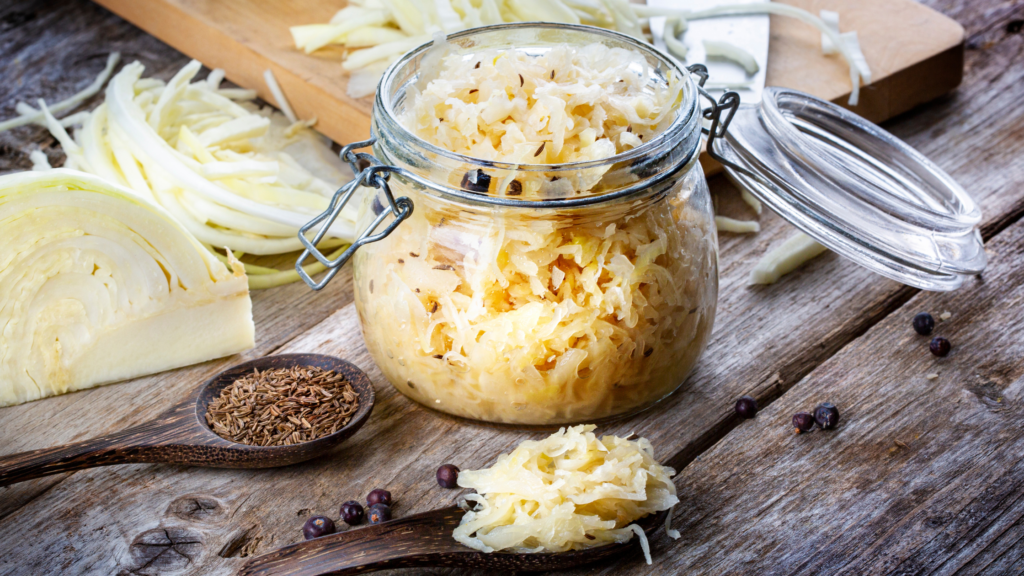
Sauerkraut is one of the easiest fermentation processes and is therefore relatively simple to do. You only need a few ingredients! Sauerkraut is also rich in minerals, vitamin C and dietary fibre AND reduces pathogenic bacteria (Leeuwendaal et al., 2022).
Ingredients:
- 1 medium green cabbage
- 1 tablespoon sea salt
- 1 tablespoon caraway seeds (optional)
Equipment:
- Large glass bowel
- Glass jar (preferably a kiln jar but not essential)
Instructions:
- Remove the outer leaves of the cabbage and set them aside.
- Shred the cabbage finely and place it in a large bowl.
- Add the sea salt and caraway seeds (if using), then massage the cabbage with your hands for about 10 minutes until it releases its juices.
- Pack the cabbage tightly into a clean jar, pressing it down firmly so that the liquid rises above the cabbage.
- Cover the cabbage with the reserved outer leaves and press down.
- Seal the jar and let it ferment at room temperature for 1-4 weeks, tasting periodically until it reaches your desired level of tanginess.
- Once fermented, store the sauerkraut in the refrigerator.
Enjoy your homemade sauerkraut as a delicious and gut-friendly addition to your meals!
Here are a few links to some other great recipes:
Recommended Pre and Probiotic Supplements
To support your journey towards better gut and reproductive health, here are some of my favourite prebiotic and probiotic supplements – to be used for a period of healing but not long term:
- Invivo Bio.Me.Prebio.PHGG – prebiotic great for SIBO and constipation
- Activated Probiotics Biome Daily – good daily probiotic option
- Invivo Bio.Me.Barrier – excellent probiotic for gut-brain, intestinal barrier and immune support (my favourite)
- Seeking Health Probiota HistaminX – good probiotic if you have histamine issues / allergies
- Seeking Health Saccromyces boulardii – good probiotic for travel and helping reduce Candida
- Invivo Bio.Me FemmeV – probiotic if you have vaginal infections / want to improve your vaginal microbiome / support implantation success. Can be used vaginally but I would recommend no longer than 7 days per month without practitioner support.
- Invivo Bio.Me FemmeUT – great probiotic for urinary tract infections
- Designs for Health Periobiotic Silver – probiotic toothpaste (if you suffer from gum / tooth pain – as this can impact fertility)
- Nutri Advanced Calcium d-glucorate (3 months supply) – great nutritional supplement for reducing b-glucoronidase enzyme if produced by overgrowths in the estrobolome.
If you are trying to conceive, taking a prebiotic, gut probiotic, and vaginal probiotic is a great way to support your health. It is good to switch your probiotics up on a regular basis.
Microbiome Testing
If you find that using foods and probiotics are not resolving your digestive issues or if you have any vaginal symptoms such as itchy, odour, odd colour discharge and are trying to conceive then the next step would be to “test not guess”. By doing a microbiome you get to see what the status of the microbiome is and then take specific action bespoke to you.
I like to use Invivo Healthcare. I love their ethos, sustainability and contribution to the microbiome world – the fact they are a B Corps company says everything! I love their products from their testing to their supplements that then help resolve a wide host of issues.
There are a number of key tests I love to use with my clients from gut to vaginal, urinary and oral microbiomes. This is when working with a practitioner can be really helpful over just doing diet and supplements alone.
If you are interested in taking this further book in for a complimentary 30 mins coaching call and we can discuss what is going on with you and if you need a test and how to go about this.
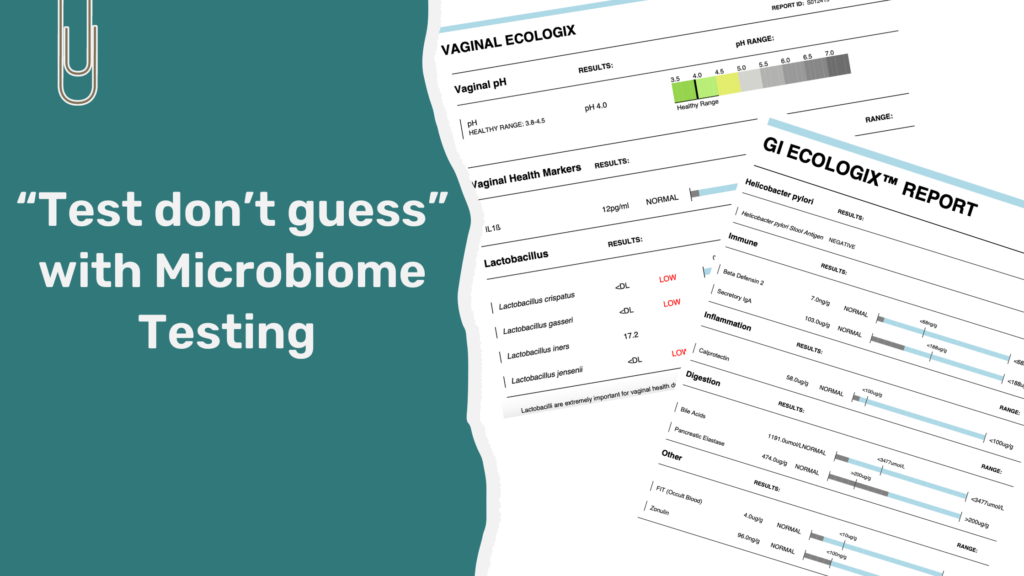
If you are interested in taking this further book in for a complimentary 30 mins coaching call and we can discuss what is going on with you and if you need a test and how to go about this.
I hope this inspires you to take steps towards a healthier gut and reproductive microbiome. Remember, small changes can make a big difference.
- Episode 43: Gut health benefits of artisan brewed water kefir
- Episode 30: Reproductive microbiome, endo and fertility
- Episode 28: Research into the estrobolome & Endometriosis
If you have any questions or want to share your own microbiome journey, I’d love to hear from you in the comments below or pop into the Thrive and Conceive with Endometriosis Facebook.
If you want to stay tuned for the next blog post, where we’ll dive into more tips and research on managing endometriosis and boosting fertility make sure you are on the mailing list for the latest Endo Fertility News here.
Medical Disclaimer
It is very important to see a doctor for proper testing and diagnosis of any gut-related condition before starting this gut health protocol. This protocol is not intended as a treatment or a cure of any gut health related condition. The information should be used in conjunction with the guidance and care of your physician. Consult your physician before implementing any nutrition program or dietary changes you feel could be harmful to your health. If you choose not to obtain the consent of your physician and/or work with your physician throughout the duration of your time using the recommendations in this protocol, you are agreeing to accept full responsibility for your actions.
You agree the author and publisher shall have no liability or responsibility to any person or entity regarding information contained in this protocol. You expressly waive, relinquish and release any claim, which you may have against the author and publisher of this protocol or its affiliates as a result of any future physical injury or illness incurred in connection with, or as a result of, the use or misuse of the information contained in this protocol.




